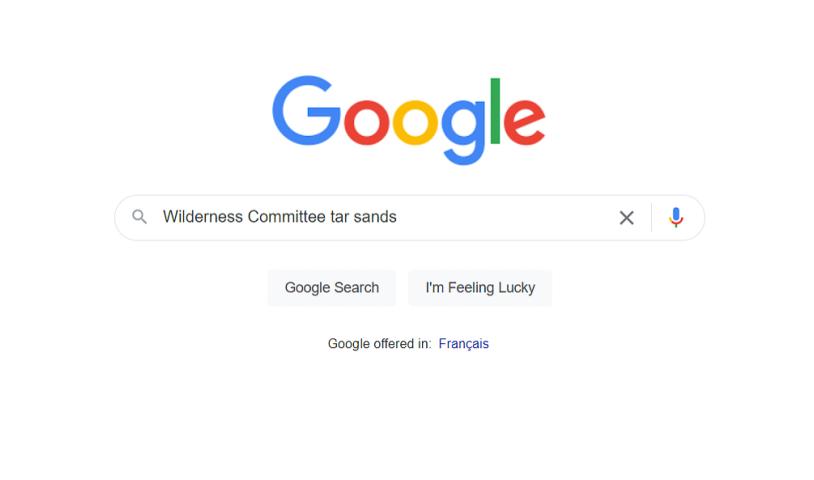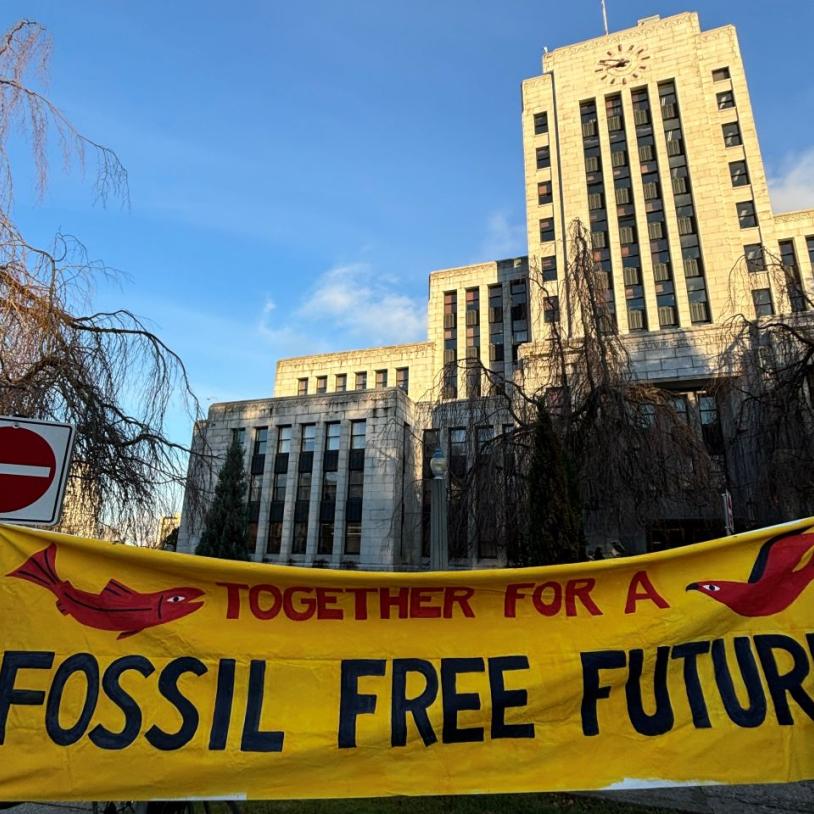Our serious response to a silly inquiry
Monday, July 19, 2021
Wilderness Committee response to Alberta’s public inquiry
In July 2019, Alberta Premier Jason Kenney launched a public inquiry, under the Public Inquiries Act, to prove his conspiracy theory about “foreign-funded radicals” being “anti-Alberta.” After two years, millions of taxpayer dollars, and a thorough Google search, inquiry commissioner Steve Allan accused numerous environmental organizations including the Wilderness Committee of being a part of “an anti-Alberta energy campaign.”
This is our response.
Dear Mr. Allan,
We are writing to respond to and refute your finding that the Western Canada Wilderness Committee participated in “an anti-Alberta energy campaign.” As Executive Director and Climate Campaigner for the organization, we are responsible for the strategic decision making and management of our climate campaigns.
Our overarching goal for these campaigns is not, as you suggest, to oppose “Alberta energy.” Rather, the goal has always been to maintain a safe and healthy climate — a goal that has gotten more urgent as time goes on and has never been more critical than today. Therefore, we challenge your interpretation of the Terms of Reference for the Inquiry.
By choosing to ignore the overwhelming scientific evidence and the question of whether projects are “economic, efficient and responsible,” your findings about our work effectively became a foregone conclusion. We stand by everything you have identified in your report as “evidence” concerning our organization. However, we note that in the absence of any public hearings, examination of witnesses, authentication of documents, or any other procedures normally followed by public inquiries for the admission of evidence, it can hardly be said that any of the information cited in your report amounts to reliable evidence by any legal standard.
We know a thing or two about evidence as is clear by the content your report quotes from our website. “The science is clear: if we are to avoid the worst of these impacts, coal and unconventional fuels such as tar sands and fracked gas need to stay in the ground.” This fact has most recently been confirmed by the International Energy Agency (IEA) in its Net Zero by 2050 report. Fatih Birol, the Executive Director of the IEA explains, “If governments are serious about the climate crisis, there can be no new investments in oil, gas and coal, from now – from this year.”
Based on our review of your Inquiry’s “dataroom,” you have focused on resources and narratives from a singular and marginal perspective rooted in climate change denialism, but it does not appear you have reviewed any resources that set out the scientific basis for our organization’s goals and campaigns. In our view, your Inquiry cannot be completed and its Terms of Reference cannot be fulfilled without doing so. To this end, we strongly encourage you to review the IEA’s report, which you may access online at: https://www.iea.org/reports/net-zero-by-2050
Our climate campaigns would not be focused on Alberta tar sands, British Columbia fracking operations or thermal coal exports from the United States if carbon pollution from the extraction, export and combustion of these fossil fuels were not causing global warming that imperils human civilization as we know it. Regardless of the jurisdiction in which they are produced, these products are destroying communities, disrupting livelihoods and killing people.
Your report also quotes from our website: “Wildfires. Hurricanes. Floods. Droughts. Heatwaves. The climate crisis is impossible to ignore.” Although this content was written several years ago, the irony is striking. With the exception of hurricanes, these devastating climate impacts have all occurred across British Columbia in the last few weeks alone. From the wildfire that burned the village of Lytton to the ground, to the floods that destroyed people’s homes in McBride, to the level four drought forcing water restrictions on eastern Vancouver Island, to the heatwave linked to 808 sudden deaths in the province at the end of June — these are precisely the climate impacts of irresponsible fossil fuel extraction we have been warning about in our campaigns for the last decade.
We have certainly been involved in opposing new tar sands mines and new or expanding pipeline proposals since at least 2010. A tiny fraction of that work was supported by the 2012 grant you identify in your report. However, the overall goals include defending the rights and interests of coastal communities and Indigenous Nations on the Salish Sea, fighting for the federally identified critical habitat of species at risk, and linking the growth of Canada’s most polluting sector to dangerous climate impacts. The project was not, as you presume, to “oppose Alberta energy.” These messages are highlighted repeatedly throughout the statements you gathered from publicly available sources, yet you have chosen to ignore the clear intention of our work. Instead, you use these as evidence to find we have participated in an anti-Alberta energy campaign despite the fact our climate campaigns target fossil fuels from other jurisdictions including B.C. and the U.S.
In making this finding you declare that we have broad and general objections to the development of Alberta’s oil and gas resources. Again, we think the evidence shows that our objections are to the development of any oil and gas resources — not just those in Alberta — and they are not broad and general but specific and science-based. We object to the extraction and combustion of fossil fuels because it creates carbon pollution that is warming our planet and endangering lives. That statement is not controversial and has been effectively endorsed by the Intergovernmental Panel on Climate Change, the International Energy Agency, the UN Environment Project and the Government of Canada. We consider it essential that you too consult and consider those resources in order to have a more fulsome and balanced understanding of the issues that lie at the heart of your Inquiry.
An important distinction your report also ignores when reviewing our work is the fact our campaigns are directed in a large part at corporations and their shareholders, who may not be located in Alberta. From Kinder Morgan to Shell to Teck, these companies generate enormous profits from oil and gas projects, receive substantial government subsidies at the cost of taxpayers, and often leave environmental liabilities for the public. Our campaigns target some of the richest companies in Canada, not their workers who now face layoffs as the industry seeks to cut costs. Providing a just transition for oil and gas workers with rapid retraining, job guarantees and early retirement is integral to our climate campaigns and we, therefore, argue we are the group with the best interests of Albertans in mind, not oil companies who are only interested in making a profit.
Notwithstanding the unreasonable time limitation that your Inquiry affords to environmental groups to respond to your false conclusions, these few examples prove your characterization of our campaigns as “anti-Alberta energy” is a deliberate misinterpretation of our important work in defence of wilderness, wildlife and the climate. Our climate campaigns are neither exclusively targeted at Alberta nor explicitly opposed to its energy. On the contrary, we are extremely supportive of many of Alberta’s energy resources including wind, solar and geothermal. It is the extraction and combustion of fossil fuels wherever it takes place that we oppose — a position that is grounded in the science of climate change.
Therefore, we reject your findings in their totality as the evidence you have gathered is incomplete, insufficient, and does not support your conclusion. We have always been and remain committed to maintaining a safe climate and that is the driving force behind our campaigns.
Sincerely,
Peter McCartney | Climate Campaigner
Beth Clarke | Executive Director





